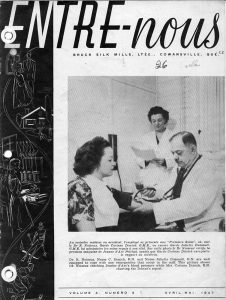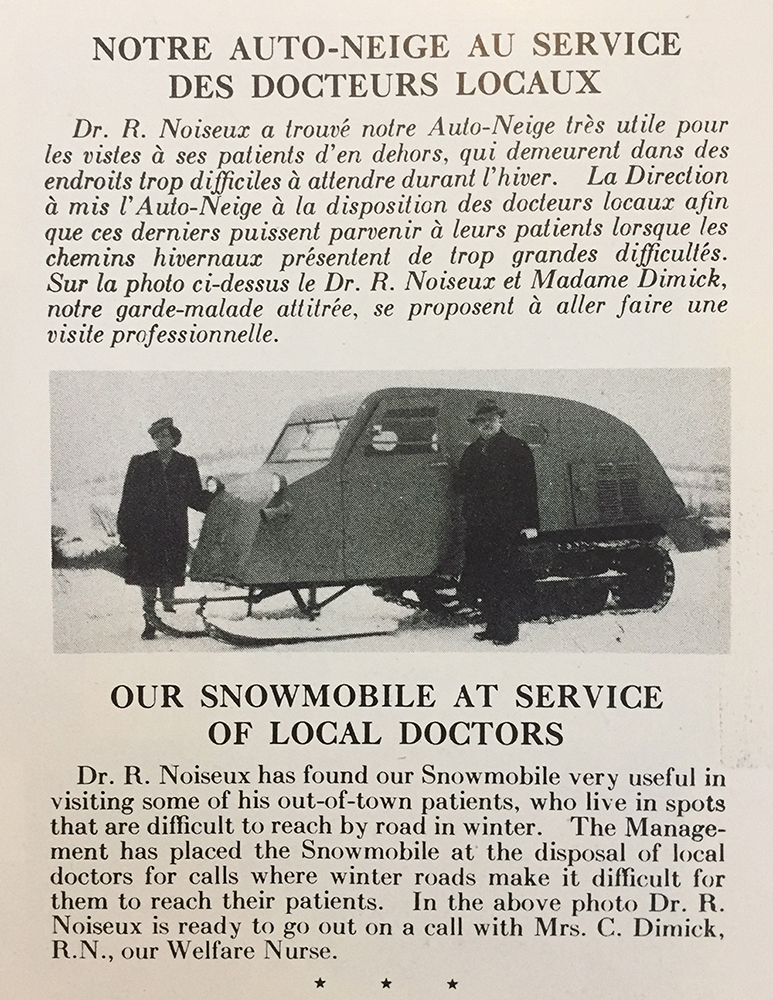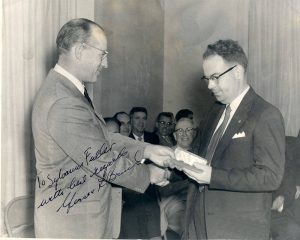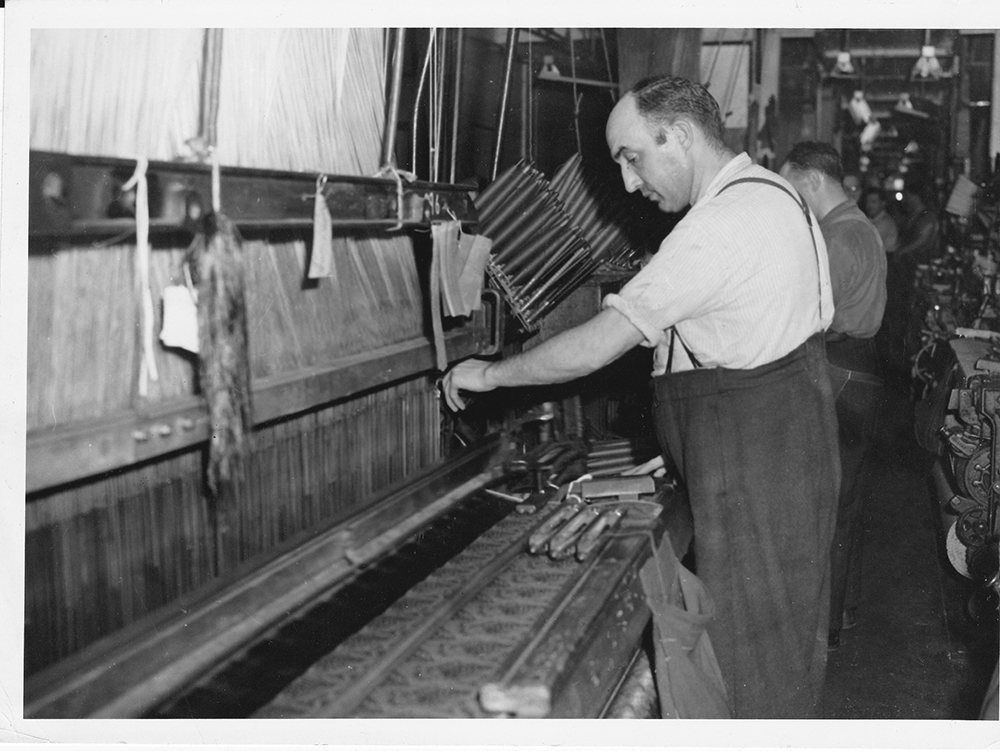A progressive wellness program for its time
In addition to its social involvement, Bruck Mills implements a series of measures for ensuring the safety and recognizing the work of its employees. Faced with gradual unionization, the family business adopts an approach aimed at retaining employees.
Employee benefits
Starting in the 1940s, the company gives factory workers free access to first aid. In the event of illness or accident, the employee is treated on-site by Dr. Rouville Noiseux and nurses Corinne Leblanc Dimick, Juliette Dussault and Régina Lapointe. The doctor follows his patients closely and the company provides him with a Bombardier snowmobile for winter travel.
On May 19, 1949, Bruck also creates a health insurance plan that allows employees who have suffered injuries or accidents to receive monetary compensation. All of these benefits are of great importance to employees until the federal and provincial governments introduce universal social programs in the 1960s.
“Bruck had a very good reputation in the industry and there was the location. I was interested in Cowansville and I knew that Bruck was a big employer and that the employees were well-treated.”
– Martial Chartier, former employee and graduate of the Institut des textiles de Saint-Hyacinthe
Work recognition
Bruck also creates recognition and retention programs for its employees. After five years of continuous service, workers join the Manager’s Club and receive a $40 bonus; after 15 years, they join the Vice President’s Club, which comes with a $65 bonus; after 20 years, they join the President’s Club and receive a formal thank you, a $100 bonus, and a souvenir watch from Gerald Bruck. In 1950, the club has 66 members, 55 of whom are still active. The Club de la cigogne, founded in 1949, pays a premium for each employee’s newborn to open a savings account.
Gradual unionization and workplace safety
By the end of the 1950s, there is still no union in the plant despite repeated attempts by some organizers. A company controller says that some employees, initially in favour of unionization, now seem to be opposed to it, a position he says is the result of the family business’ paternal attitude toward its employees. A Ministry of Labour investigation commissioned by the National Catholic Textile Union also reveals divisions among workers over unionization, with some complaining of undue pressure on employees to join the union. Workplace safety is an important issue that is not well regulated by industry standards at the time and the risk of accidents is very present.





